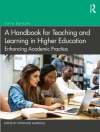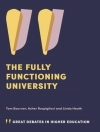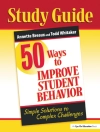Teachers make a difference not only in what their students learn about content, but in what they learn about life!
Closing the achievement gap and creating high-performing schools depends not on what we teach but how we teach. The most powerful and effective way teachers can help students overcome negative influences in their environment as well as succeed in becoming their best selves is by developing close and caring connections with them.
Developing quality relationships with students is key to their healthy development. Teachers DO Make a Difference gives teachers strategies, guidelines, and real-life examples of how to build and enrich close and trusting teacher-student relationships. This important new resource covers key topics including:
- Setting high expectations for students
- Conveying confidence in student capabilities
- Creating classroom rituals and traditions
- Networking with family and community
- Developing strong interpersonal skills
- Identifying relational resources
- Communicating appropriate caring and respect in the classroom
Healthy connections with teachers are associated with a decrease in behavioral problems and an increase in social and academic skills. The relationships we develop with our students are at the heart of how we make a difference.
Cuprins
Foreword – Bonnie Benard
Preface
About the Author
1. Our Changing Roles as Teachers
Changing Student Needs and the Teacher′s Role
Having Healthy Connections With Young People Is Key to Their Healthy Development
Meeting Our Students′ Needs: The Caring Teacher
Central Concerns for Caring Teachers
2. Making Healthy Connections With Students
What We Do To Make a Difference
How I Did the Study
Meet the Teachers
Different Ways We Can Make Healthy Connections With Students
Creating One-to-One Time with Students
Using Appropriate Self-Disclosure
Having High Expectations of Students While Conveying a Belief in Their Capabilities
Networking with Family and Friends
Building a Sense of Community Among Students
Providing Rituals and Traditions
Summary of the Ways To Create Healthy Connections with Students
3. Communicating to Our Students That We Care
Treating Students with Dignity and Respect
The Ways We Show Respect to Students
How Students Respond to Respectful Treatment
Summary of How We Communicate Caring
4. What It Takes to Revitalize Ourselves
How We Can Revitalize Ourselves
Feeling Competent Generates Emotional Rewards
Beliefs About the Role of Teacher and Teaching
Personal Qualities That Enhance Connecting With Students
Common Interpersonal Skills and Relational Resources that Enhance Connecting with Students
Support of Family, Friends, and Professionals
Summary of What It Takes to Revitalize Ourselves
5. Yeah, I Hear You, But…
The Good News
Responses to Concerns
Concluding Thoughts
Resources
References
Index
Despre autor
Judy Deiro, Ph.D., has been a full-time faculty member at Western Washington University since Fall, 1997. In her 40+year career, she has worked as a teacher, counselor, and education consultant. Some positions she has occupied include vocational rehabilitation counselor, state women’s prison counselor, chemical dependency counselor, and full-time postsecondary teacher and counselor. As a consultant, she has given numerous presentations nationwide and internationally on healthy teaching and parenting strategies for the prevention of high-risk behaviors. Judy’s passion is for facilitating healthy understanding and collaboration between human services and education in order to promote student success.Judy is a recipient of the Washington State Chemical Dependency Educator of the Year’s Award, the Washington State Exemplary Women in Community College’s Award, and the Whatcom Community College Full-Time Faculty Excellence Award. She also has been awarded Who’s Who in America by the Marquis Board of Publications.












